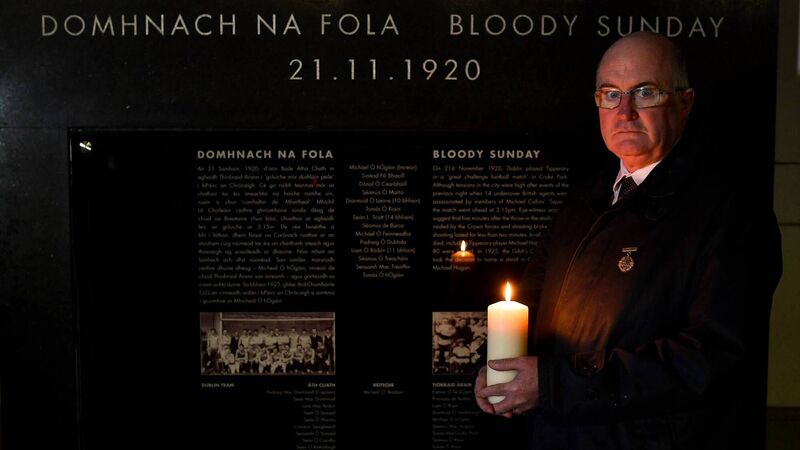Kieran Shannon: John Horan's time as GAA president has finally earned a legacy

SHINING LIGHT: GAA president John Horan lights a candle at the Bloody Sunday memorial in Croke Park. Horan will also be remembered for helping to make sure we got to see the boys of summer after all — in the winter.
For a long while there John Horan’s presidency seemed destined to be as underwhelming as, well, his predecessor’s presidency — and a good deal more gaff-prone.
Between himself and the new director-general Tom Ryan, the GAA kept stumbling from one self-inflicted jam to another in their first summer in their respective new jobs. The whole Newbridge or Nowhere farrago. Allowing the Liam Miller testimonial get stuck on red and amber for so long before eventually it got the green light to proceed in Páirc Uí Chaoimh.








